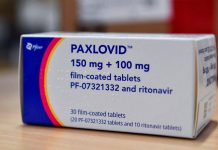Fungal infections are of several types and you can get them after coming into contact with a fungus or fungal spores.
Most fungal infections are seen in the skin, nails, and mucous membranes. Common fungal infections include:
- Ringworm (tinea): a fungal skin infection seen on the scalp, feet (athlete’s foot), groin (jock itch), and on other parts of the body
- Oral thrush: an infection characterized by Candida yeast overgrows in the mouth
- Nail fungus: it typically affects the toenails and fingernails
- Vaginal Yeast Infection: Candida yeast infection in and around the vagina
To treat these types of infections, doctors often advise antifungal drugs. There are several types of antifungal drugs. They work in two ways – by directly killing fungal cells or by preventing fungal cells from growing and thriving, according to Healthline.
Generic Medicines for Fungal Infections
Azoles
Doctors often advise azoles for most fungal infections. The drugs interfere with an enzyme that’s important for creating the fungal cell membrane, making it unstable and leading to cell death. There are two subgroups of azole antifungals – imidazoles and triazoles.
- Imidazoles: Ketoconazole, Clotrimazole, Miconazole
- Triazoles: Fluconazole, Itraconazole, Posaconazole, Voriconazole, Isavuconazole
Polyenes
Polyenes make the fungal cell wall more porous, eventually killing it. Some of the common examples of polyene antifungals include:
- Amphotericin B
- Nystatin
Allylamines
Allylamines are like azoles; they interfere with an enzyme that is involved in the creation of the fungal cell membrane. One example of an allylamine includes:
- Terbinafine
Echinocandins
Echinocandins are a newer type of antifungal drug, according to Healthline. The drugs inhibit an enzyme that is involved in the making of the fungal cell wall. Examples of echinocandins include:
- Anidulafungin
- Caspofungin
- Micafungin
Others
There are also other types of generic medications for fungal infection. However, they have a different mechanism than the abovementioned ones. They include:
- Flucytosine
- Griseofulvin
Generic medicines for fungal infections target the process and structures particular to fungi to kill fungal cells and prevent them from growing. There are several types of antifungal drugs and can be given in several different ways. Most fungal infections are easily treated, but some can be serious so it is important to see your doctor if your fungal infection fails to subside even after using antifungals.




















